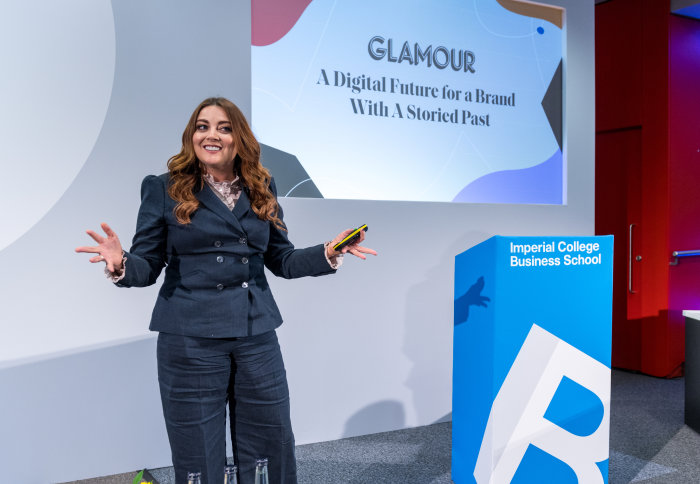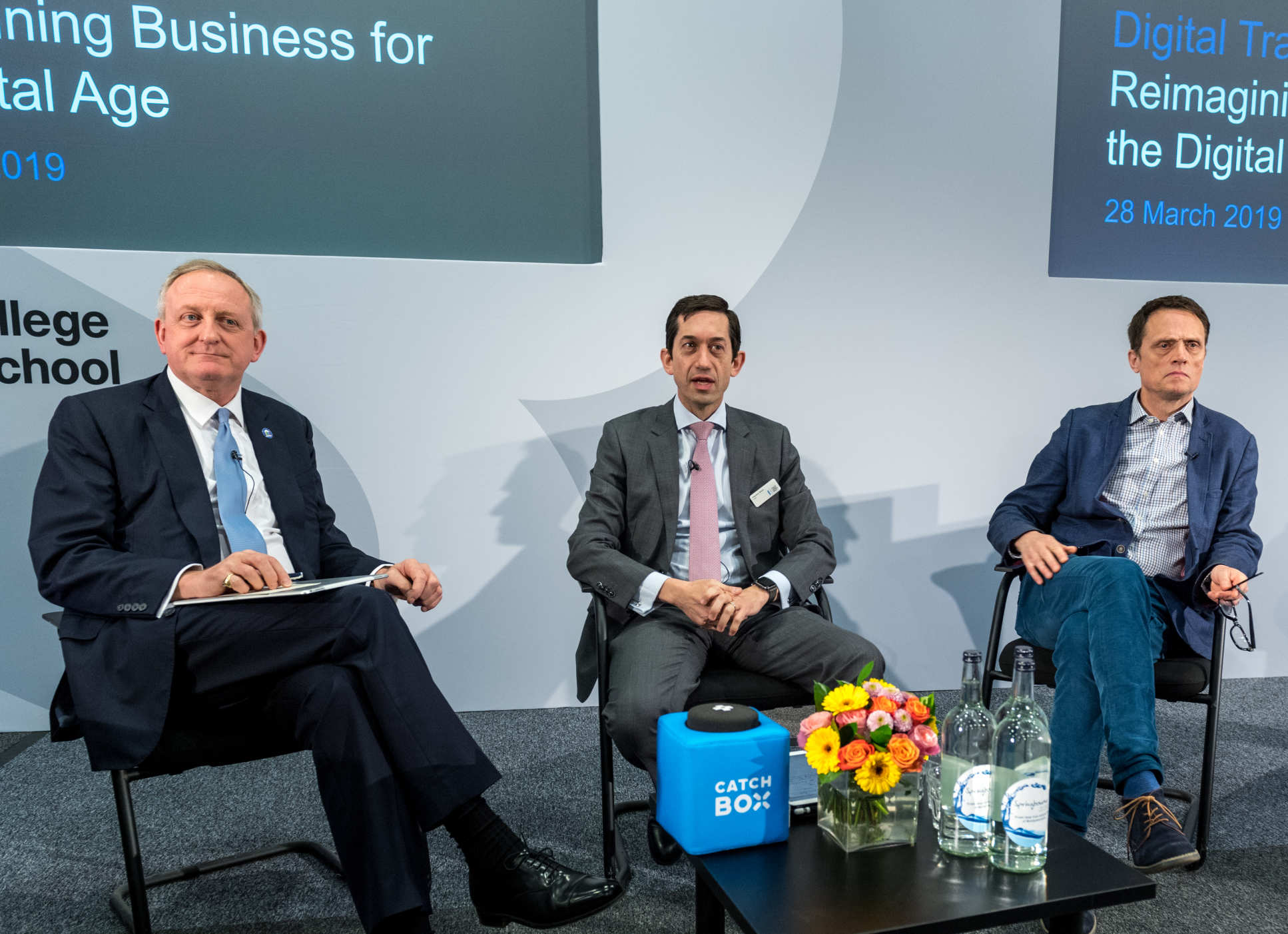Digital has the potential to transform both business and society, say experts
by Serena Cowdy

Samantha Barry, Editor in Chief of Glamour magazine speaking at the conference
Businesses must embrace digital technology to survive and mustn’t leave anyone behind, agreed experts at a Business School conference.
An inspirational line-up of thought leaders spoke at Imperial College Business School’s annual conference: Digital Transformation: Reimagining Business for the Digital Age.
The event brought together business leaders, public policy experts and digital entrepreneurs. Topics discussed ranged from what digital transformation really means, and how businesses can take advantage of these changes, to how digital technology can bring together society and further social and political progress.
Championing digital inclusion
The first keynote speech of the day was given by Peter Estlin, Lord Mayor of the City of London. He focused on digital skills, and particularly on how the education system needs to change to keep pace with technology.

The Lord Mayor highlighted his Shaping Tomorrow’s City Today programme, which seeks to promote the innovation and technology that will help our economy to thrive, champion the digital and human skills vital for our future, and address digital and social inclusion.
“The biggest challenge we face when it comes to training our children for the workplace of the future, is that we do not yet know what that workplace will look like,” said the Lord Mayor.
Preparing for the workplace of the future
The next keynote address was given by Matthew Taylor, CEO of the RSA and formerly Chief Advisor on Political Strategy to Prime Minister Tony Blair. His speech provided valuable insight into the political and societal implications of dramatic digital change, and highlighted four scenarios developed by the RSA in its Four Futures of Work report.
The scenario most likely to occur, Mr Taylor explained, depends on which particular combination of technological and psychological variables arise.

In an engaging Q&A session, both the Lord Mayor and Mr Taylor agreed that including everyone in the digital transformation journey is crucial if we are to achieve societal cohesion. “When people feel they are being left behind,” the Lord Mayor commented, “they also often feel that they have no option but to pursue a different and divisive agenda.”
“It’s crucial that business leaders grasp how key digital innovations relate not only to their own companies, but to the individuals within them, and to society as a whole." Professor Francisco Veloso Dean of Imperial College Business School
In the second session of the day, delegates heard from Geraldine Calpin, CMO of the Madison Square Garden Company, who shared how she has successfully implemented a range of digital transformation strategies in a commercial context.
Once again, a core theme was the need for inclusivity. Rather than focusing on delivering digital transformation for this or that customer segment, Ms Calpin explained, it should be a development that makes a positive difference to all.
From print magazine to digital platform
The day’s final keynote speaker was Samantha Barry, Editor in Chief at Glamour. Ms Barry blazed a technological trail within the publishing industry last year, when she took the decision to pull away from a monthly print schedule for the 80-year-old magazine, and instead pursue a primarily digital agenda.
Ms Barry explained how she did it, highlighting the challenges she faced and the groundbreaking steps she took to ensure a genuinely inclusive environment for those who had formerly worked in print.
In a series of panel discussions throughout the day, delegates heard from both digital entrepreneurs and those tasked with integrating transformative digital change into their businesses. Speakers emphasised that digital transformation has to be about people first and foremost.
As Rashik Parmar, Technical Executive at IBM Europe described it: “How do you make people comfortable with feeling vulnerable? How do you encourage them to open themselves up to new digital challenges? That is at the heart of the issue across all industries. Technology is the enabler, but first and foremost it is about managing minds.”
Reflecting on the conference, Business School Dean Professor Francisco Veloso said: “It’s crucial that business leaders grasp how key digital innovations relate not only to their own companies, but to the individuals within them, and to society as a whole. Here at Imperial College Business School, we are uniquely placed to provide intellectual leadership and support in doing this.”
Article text (excluding photos or graphics) © Imperial College London.
Photos and graphics subject to third party copyright used with permission or © Imperial College London.
Reporter
Serena Cowdy
Business School